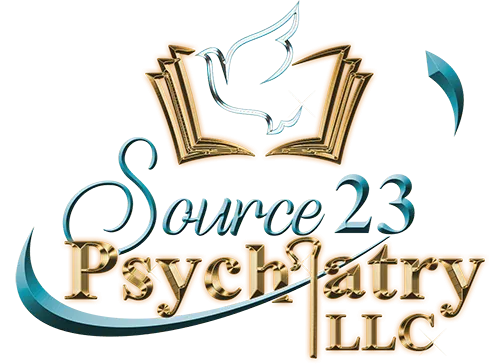Breaking the Stigma: Myths and Facts About Bipolar Disorder
Mental health disorders have a negative stigma surrounding them, especially bipolar disorder. Understanding what's true and what's not surrounding this condition is crucial. Read on to discover common myths and accurate facts about bipolar disorder.
Bipolar disorder is a mood condition with many misconceptions about it. Between TV shows and the media, it's easy to get confused about the falsities and truths surrounding this mental health problem.
If you or someone you love has bipolar disorder, getting the facts straight to be able to live productively is essential.
The team at Source 23 Psychiatry offers customized treatments and compassionate care to every patient who comes through the doors. Kimberly Gilbert, MSN, APRN, PMHNP-BC, is our psychiatry expert providing vital information on bipolar disorder for appropriate care and treatment.
What is bipolar disorder?
Bipolar disorder is one of many mental health conditions affecting adults and children. The condition affects one's energy, mood, and functionality daily.
The main aspect of bipolar disorder is the dramatic change in a person's mood over days to weeks. Some people experience intense manic episodes, causing them to be abnormally irritable or happy.
Others with bipolar disorder experience long-term depression, leading to sadness and a lack of energy or productivity.
There are several different forms of bipolar disorder, each with specific symptoms. Bipolar disorder is often hereditary, meaning you're more likely to have it if one of your immediate relatives also has it.
You can live a productive and fulfilling life when you have bipolar disorder. Many treatments are available to help ease your symptoms and allow your moods to stabilize.
The myths (and facts) of bipolar disorder
When you have bipolar disorder or know someone who does, it's crucial to understand the condition, not just the myths you hear. The following are common myths about bipolar disorder, followed by facts:
Myth: Bipolar disorder is infrequent
The truth is 2.8% of adults had bipolar disorder within the past year, according to the National Alliance on Mental Illness. Although this isn't a vast number, realizing the illness is more common than you might think is essential.
Myth: People with the disorder are simply moody
Bipolar disorder affects various aspects of a person's mental health, including sleep and energy levels. The symptoms are much different than mood swings or general moodiness.
The disorder leads to the highest of highs and the deepest of lows, contributing to the depression symptoms and manic episodes related to bipolar disorder.
Myth: There's only one form of bipolar disorder
Several types of bipolar disorder affect people's mental health. The three primary forms of the disease are bipolar 1, bipolar 2, and cyclothymia. Each form of the disorder causes different symptoms and different treatments.
Myth: Bipolar disorder looks the same on everyone
The fact is that bipolar disorder affects everyone differently. Some people experience more signs of depression, while others have more manic episodes than depression.
Everyone's symptoms are different with bipolar disorder, so various treatments are available to target specific forms of the disease.
Myth: Mania is the only symptom
Mania is only one aspect of bipolar disorder. There are various mental health issues related to bipolar disorder, including mania, hypomania, and depression.
People with bipolar disorder may experience mania, hypomania, and depression at different times when living with bipolar disorder.
Myth: You don't need treatment forever
Many people with bipolar disorder require lifelong treatment to control their symptoms. A combination of psychotherapy and medications is often essential to prevent further depressive or manic episodes.
People living with bipolar disorder must not suddenly stop treatment. It's a lifelong process that often requires therapy routines and medication changes to keep symptoms from disrupting their lives.
If you're living with bipolar disorder, don't hesitate to call Source 23 Psychiatry at 614-908-2721 to schedule your virtual or telehealth appointment today. You can also request your virtual appointment on the website.
Psychiatry & Telehealth located in Virtual Office, Columbus, OH
Source 23 Psychiatry, LLC
4449 Easton Way, Suite 200,
Columbus, OH 43219
Hours of Operation
Source 23 Psychiatry, LLC
Monday
9:00 am - 6:30 pm
Tuesday
9:00 am - 6:30 pm
Wednesday
9:00 am - 6:30 pm
Thursday
9:00 am - 3:00 pm
Friday
Closed
Saturday
10:00 am - 3:00 pm
Sunday
Closed
PSALM 23: 1-6
1 The Lord is my shepherd; I shall not want.
2 He maketh me to lie down in green pastures: he leadeth me beside the still waters.
3 He restoreth my soul: he leadeth me in the paths of righteousness for his name’s sake.
4 Yea, though I walk through the valley of the shadow of death, I will fear no evil: for thou art with me; thy rod and thy staff they comfort me.
5 Thou preparest a table before me in the presence of mine enemies: thou anointest my head with oil; my cup runneth over.6 Surely goodness and mercy shall follow me all the days of my life: and I will dwell in the house of the Lord for ever.

